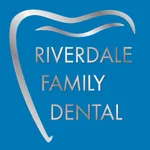Oral cancer screenings check for any precancerous or cancerous conditions in the mouth. An oral cancer screening is completed with an ultraviolet light that allows your dentist to view issues that cannot be detected with the naked eye. Precancerous lesions identified under this light are much easier to be removed and are more likely to be cured.
Causes of Oral Cancer
- Tobacco use of any kind, such as cigarettes, cigars, pipes, chewing tobacco, snuff, dip and vaping
- Heavy alcohol consumption
- Family history of cancer
- Human papillomavirus (HPV)
- Significant sun exposure
Symptoms of Oral Cancer
- Red or white spots or sores anywhere in the oral cavity
- A sore that bleeds easily or does not heal
- A lump, thickening, or rough spot
- Pain, tenderness, or numbness anywhere in the mouth or on the lips
- Difficulty chewing, swallowing, speaking, or moving the jaw or tongue
Preventing Oral Cancer
- Avoid all tobacco products
- Drink alcohol in moderation
- Maintain a healthy, balanced diet
- Limit your exposure to the sun and always wear UV-A/B-blocking, sun-protective lotions on your skin as well as your lips
- Ask your dentist to perform an oral exam since early detection of oral cancer can improve the chance of successful treatment
